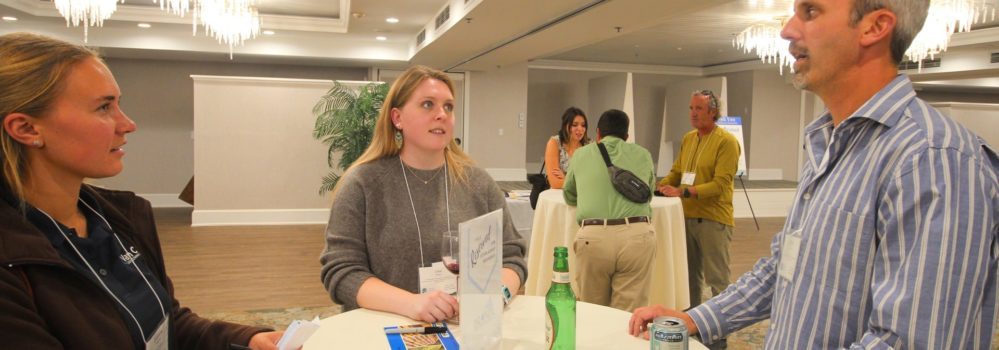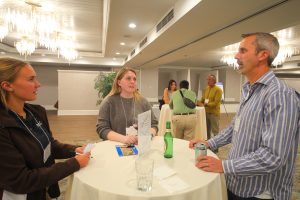
Reflections on the Living Shorelines Workshop – Lexi Watson
By Lexi Watson
I have always had a love for the water, but as I have learned more, estuaries have become a true passion of mine. I love that in an estuarine system all parts of the system play a critical role and must function at full capacity for the ecosystem to be truly healthy.
When I heard about the 2021 Living Shorelines Tech Transfer Workshop, I knew it was an event I had to attend. I was so excited to be able to share my knowledge and learn from so many others on a topic that is near and dear to my heart.
my knowledge and learn from so many others on a topic that is near and dear to my heart.
This experience was also the first time that I’ve participated in a large setting where people discuss different types of living shorelines projects and how you can take an interdisciplinary approach to using multiple solutions as well as engaging community members, businesses, and other groups to achieve these solutions.
It was also the first chance I’ve gotten to see what tactics are being used in the field to protect shorelines. Having the opportunity to ask questions of seasoned professionals, and them openly discussing struggles and successes is something that will stick with me as I move forward in my career.
I am incredibly thankful to the Island Foundation for providing a scholarship to attend this conference. Without this assistance, I would not have been able to experience this event and participate in the sharing of information that I will be taking with me through my career. The scholarship for me was a make or break of me joining the fun in Cape May this year.
As a young professional carving my own way in this space and looking ahead to my graduate studies and eventual career, the 2021 Living Shorelines Tech Transfer workshop opened my eyes to new opportunities and areas of study within estuarine science and technical studies. I hope to continue studying how living shorelines improve marine life and the ecosystem services they provide.
Lexi Watson is currently working at Maryland Department of the Environment in their wetlands and waterway program in the tidal division through a mentor/ mentee program with the Chesapeake Conservation Corps and the Chesapeake Bay Trust. She plans to attend grad school and hopes to be able to work as a marine field scientist working on discovering the positive and negative effects of climate change in estuarine ecosystems like the Chesapeake Bay.
